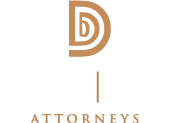Every year there are thousands of automobile accidents. Too often, these accidents can result in catastrophic injury, which can be life altering and result in long-term hospitalization, rehabilitation and potential life-long pain. There are some specific types of injuries that are considered catastrophic including:
- Spinal cord – back injuries that damage the spinal cord can result in the need for multiple surgical procedures, long-term rehabilitation and can result in paralysis.
- Serious burns – auto accidents involving a fire, resulting in third degree burns, are considered catastrophic injuries.
- Amputations – unfortunately, some auto accidents are serious enough to cause the loss of fingers, toes or limb.
What Insurers Don’t Want You to Know
In many cases, an insurance company will try to settle with victims of catastrophic injuries as quick as possible. Insurers hope that by settling quickly, they can save money and protect their bottom line. Under Florida’s “no fault” insurance laws, your insurer will pay all of your medical bills, lost wages and rehabilitation costs. However, if an injury is considered “serious” (catastrophic injuries) you may have the right to sue the driver of the other vehicle, if they were at fault.
Comparative Negligence
Florida is a comparative negligence state. That means that when two people are involved in an accident, the judge or jury must determine if one or both parties are at fault. Even as a victim, if they determine you were partially at fault, your final compensation may be reduced by the percentage of fault assigned to you.
Punitive Damages
Florida has caps on punitive damages. Punitive damages are generally requested as part of catastrophic injury cases and are meant to punish the at-fault person for an amount greater than the medical, rehab, and lost wages expenses. Caps in Florida are set to three times the amount of actual damage or $500,000, whichever is less.
If you or a loved one has suffered a catastrophic injury as the result of someone’s negligence, it is imperative you speak with an attorney who understands Florida statutes. Contact DDB Law today for a free consultation and we will be happy to review your case.

